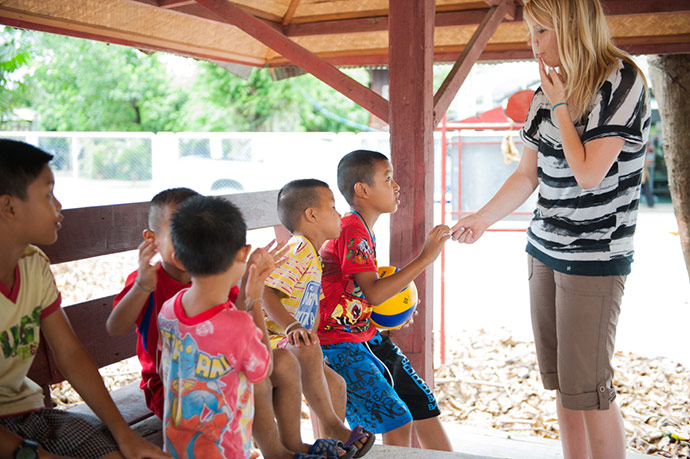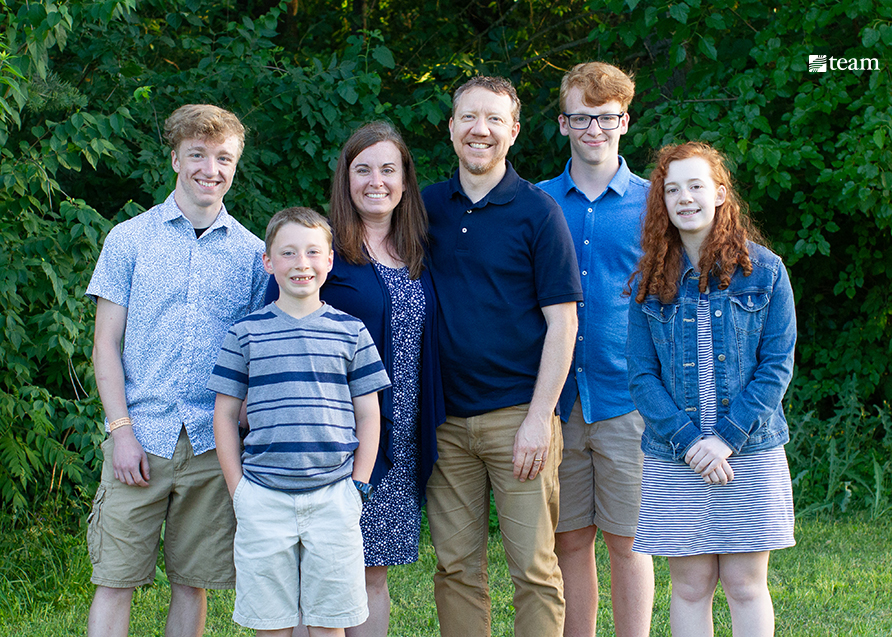
Becoming a Missionary
Mission Trip Fundraising – Treat Your Supporters Like Sharks
March 13, 2014
by Interactive Supply

Spring is just around the corner, which means we are well into the season for summer mission trip fundraising.
Many of the questions we get asked at TEAM are about raising support, and there are lots of great fundraising resources out there. But if you’re planning on raising funds for a short-term trip — whether for two weeks or a year — here’s a big idea that many people overlook in their support-raising approach: Your potential supporters are investors. Treat them that way.
We need to learn from the sharks.
If you’ve never seen the popular show Shark Tank on ABC, here’s the gist: Entrepreneurs appear before a panel of wealthy investors and have just a few minutes to make their case for why the investors should fund their business. The investors — the “sharks” — ultimately make their decision on one criterion, whether or not their investment will yield a healthy return.
One of the signals the sharks look for is how much the entrepreneur herself has personally invested in her venture. After all, if the business owner isn’t willing to risk something on the business, why should the investor be willing to? Entrepreneurs who haven’t sacrificed often walk away empty-handed.
When we raise funds, we often make the same mistake. We ask supporters to give toward something we haven’t given toward ourselves.
You may think it’s a bit cold to compare ministry supporters with business investors. But they aren’t so different. Missions supporters don’t seek a financial profit, but they do want their gift to yield Kingdom returns, in cultures and in individual lives. And missions supporters, like investors, are generally bombarded with requests for support and must discern which ones to give toward.
Often, relational equity does the job — supporters give to people they know. But consciously and subconsciously, many also look for signals that a missionary is worthy of their investment.
Here are three ways you can make sure you’re investing in your own missions experience. We can’t promise they’ll sway those on-the-fence potential supporters, but they might. And (hint, hint) these are also qualities that mobilizers at missions agencies LOVE to see when they evaluate missionaries for long-term service.
1. Financial
The most obvious investment you can make in your trip is covering a portion of the cost yourself. Pick up some extra hours at work. Sell some things at a garage sale or put your Xbox on Craigslist. Forgo eating out for a couple of months and put the savings toward your trip.
This type of sacrifice is not about “avoiding” fundraising or second-guessing God’s provision. Quite the opposite, it’s about becoming a financial supporter yourself. It shows supporters that you understand the sacrifice you ask them to make by giving to your trip, and it also has the mysterious effect of helping us value our trip more because we’ve paid for part of it.
2. Service
There are more costly investments than money. Service is one of them.
Imagine you’re going on a trip to the Dominican Republic to work with inner-city youth. What if you committed a few hours a month to befriend at-risk youth in your own community? If your church doesn’t have a way to connect you with that opportunity, groups like Big Brothers Big Sisters would love to.
Service like that tells financial supporters that you’re serious about the mission of your trip, that they’re not just investing in a 10-day excursion, but they are investing in your lifelong missional and spiritual formation. More importantly, it becomes a way to love others as Christ loves us and to connect the “mountaintop” experience of your mission trip with your real life.
We can all think of something. If you have enough skills to build a house in Kenya, you probably have enough skills to fix leaky sinks and damaged downspouts for shut-ins in your church.
3. Spiritual disciplines
Prayer is the hardest work we can do to prepare for a missions experience. It should be non-negotiable. But there are also less-obvious disciplines we can commit to as an investment in a missions trip. Take any of the practices outlined by Richard Foster in his classic, Celebration of Discipline — solitude, simplicity, confession, fasting, and study, to name a few — and creatively invest them in the outcome of your missions experience.
What if you fasted one meal a week between now and your departure, taking that time to pray for your trip? What if you set aside two hours a week for a focused study on the country or city you’ll be visiting?
Don’t just do these practices, tell your potential supporters about them. Share a story in your appeal letter about the 7-year-old boy you’re mentoring as part of your missions commitment. Write a short anecdote about your time at the library, studying Mexico’s history and praying through it. Write about the sum of money you’ve resolved to personally contribute toward your trip.
Let’s be clear: This is not the type of “practicing your righteousness in front of others” that Christ warns against in Matthew 6. It’s actually an opportunity for accountability. Tell your supporters your plan, and ask them to check in on how it’s going. The truth is, it will be obvious to most supporters and missions agencies how deep your personal investment runs, whether you write about it or not.
And if you can’t build some or all of these signals into your fundraising approach, perhaps it’s time to face a hard question: Are you asking someone to invest in something that you aren’t willing to invest in yourself?
Special thanks to blog contributors Arnie Adkison and Josh McQuaid for their help with this post.
Related articles

